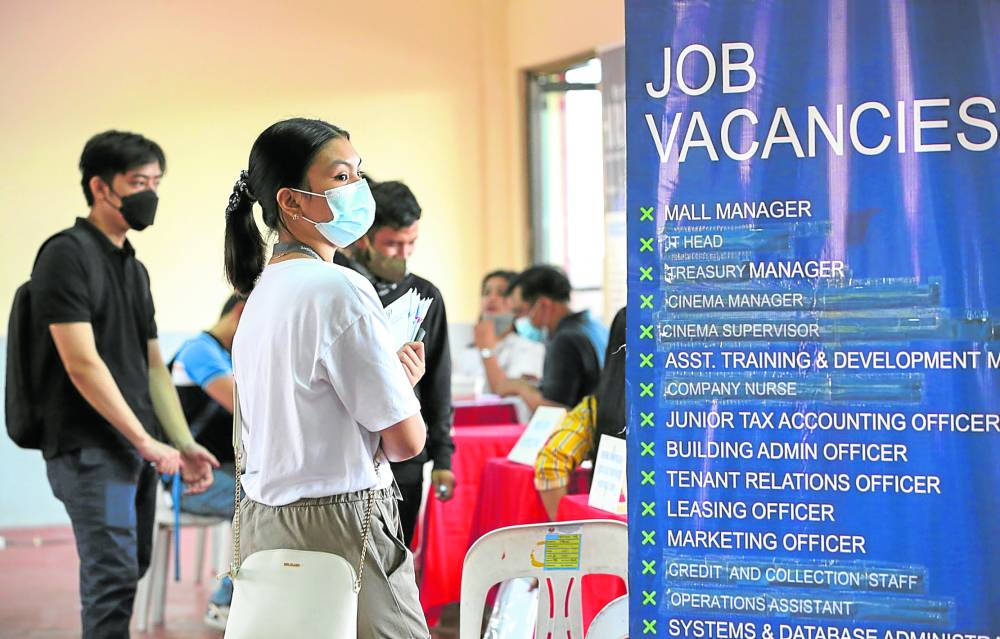
FILE PHOTO: A woman goes to a job fair in Marikina City. Philippine Daily Inquirer/Lyn Rillon
The Marcos administration’s chief economic planner said that while the Philippine Statistics Authority (PSA) pegged the unemployment rate at 4.8 percent in January—better than in 2022—the government still needs to create “more productive and higher-quality” jobs.
National Statistician Dennis Mapa said at a press briefing that the figure meant that 48 out of 1,000 persons were jobless in January, which was better than the 6.4 percent recorded in the same month of 2022.
READ: Jobless rate rose to 4.8% in January 2023
Mapa said there were 2.37 million Filipinos age 15 and older, who were available for or looking for jobs in January.
This was 580,000 less than the 2.95 million job seekers in January last year.
Also, 3.51 million Filipinos had jobs or businesses (meaning self-employed), or were available and looking for work.
READ: Jobless rate inched up to 4.3% in December 2022
This brought the number of participants in the labor force to 49.72 million Filipinos from 46.22 million a year earlier.
The number of those with jobs or businesses increased by 4.09 million to 47.35 million from 43.27 million.
This translates to an employment rate of 95.2 percent, which improved from 93.6 percent in January 2022.
National Economic and Development Authority Secretary Arsenio Balisacan said that the data indeed show robust recovery and labor market growth from January 2022.
But the jobs created were mostly part-time and classified as “vulnerable.”
“High-quality jobs necessitate highly skilled individuals,” he said. “We will prioritize the upskilling and reskilling of the workforce to equip them with higher competencies by expanding lifelong learning opportunities.”
READ: Neda says gov’t committed to create more jobs amid easing jobless rate
PSA data show that last January, the services sector remained the biggest source of jobs with 61 percent of total. The agriculture sector accounted for 22 percent of jobs and the industry sector 17 percent.
The industries that saw the biggest workforce increases were wholesale and retail trade; repair of motor vehicles and motorcycles (1.53 million), agriculture and forestry (960,000); and accommodation and food service activities (549,000).
On the other hand, the most job losses were seen in the industries of construction (334,000); water supply, sewerage, waste management and remediation activities (34,000); and professional, scientific and technical activities (19,000). The Employers Confederation of the Philippines (Ecop) welcomed the jobs data, but asked the government to allot more funds to micro, small and medium enterprises to help with job creation.
Ecop president Sergio Ortiz-Luis Jr. said the private sector has committed to help create 1 million more jobs this year but noted that the labor force will also grow by 800,000 with the entry of fresh graduates.